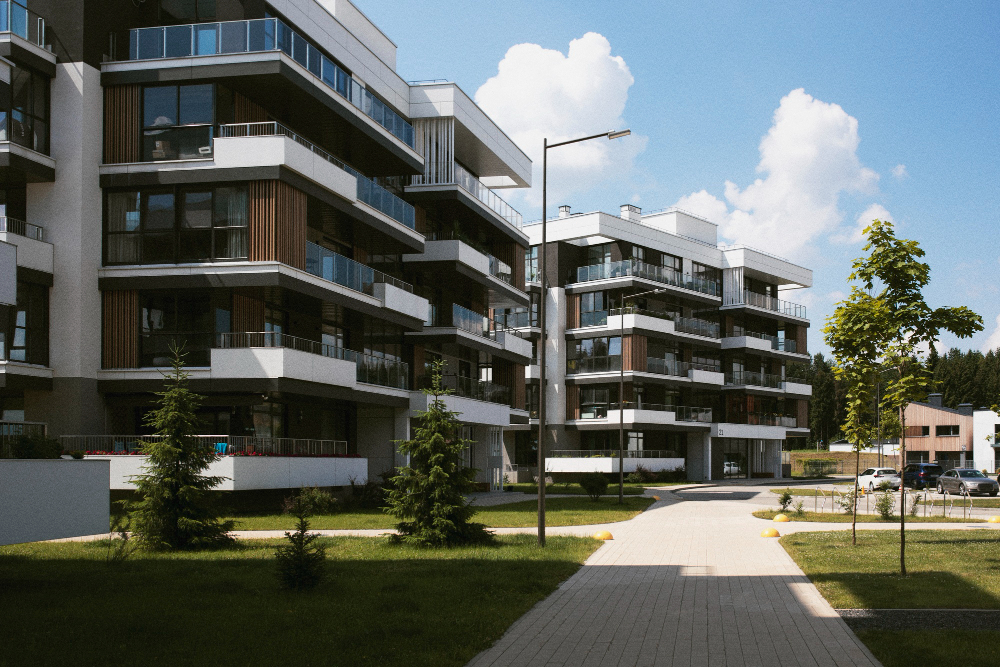
Investing in real estate is a trending topic around the globe, and Nigeria isn’t an omission. With an emerging population, the Nigerian real estate market is becoming more attractive to investors both local and foreign.
Investing in real estate is currently one of the most various ways to make money in the world. Some people have found success and made it a full-time job or profession. And we believe you can succeed in the business too.
There is no doubt that investing in real estate is the preferred type of investment for various people but there are several issues accompanied with investing in real estate in Nigeria that every investor should know of. That is why we provided a list with the most important advantages and disadvantages of investing in real estate in Nigeria. So let’s check them out;
4 Advantages of investing in Real Estate in Nigeria.
I believe that it is a global knowledge that as long as humans exist, they will always need shelter. As such, the advantages of investing in real estate cannot be overemphasized, especially in a growing economy like Nigeria. Below are the major advantages of investing in real estate in Nigeria.
1. Income streams
This serves as one of the sources of income for an individual. In the present Nigeria economy an individual must have one or more source of income in order to meet the financial pressure of the country. Real estate ensures a continuous flow of income for an individual.
Property income from real estate can provide a steady source of cash flow that will last for years. Demand for good housing is high in Nigeria, and this will provides investors with a constant group of tenants
2. Security
Investment in real estate comes with an assurance because the price does not tend to reduce. The investment is a tangible one. Usually, the value increases over time. Although it is not always certain, but the probability that the value of a property will depreciate on a long term is low. It is why appropriate research of a location is very important before processing with the investment of the property.
3. Tangible assets
Real estate is a physical asset that can be seen and touched, unlike some other assets like bonds , stocks or mutual funds. Purposes or these properties are living, business operations and so on
4. Tax benefits
Nigerian real estate investment will come with multiple tax benefits. Investors can claim reductions on their property taxes, mortgage interest, depreciation, repairs. These deductions can substantially reduce an investor’s tax debt and increase their net profit.
4 Disadvantages of investing in Real Estate in Nigeria.
We both know that whatever has advantages also have disadvantages. The fact that investing ib real estate is good doesn’t mean it does not have it’s own disadvantages too. Below are some of the disadvantage of investing in real estate in Nigeria;
1. Maintenance
Property maintenance can cost a huge sum of money. Besides the monetary cost, the mental and physical effort it requires is quite high. Office and apartments needs scheduled renovations e.g. repair of appliances, wall painting etc. The costs can change substantially, depending on the quality of materials used and inflation rate of the country you have your properties.
The owner will have to spend a lot on electrical bills, repairs and so on. In addition to that, property owners need to pay annual tax to the government which is maintenance tax.
If you need help concerning your property management, please reach out to Travla Property Management Ltd. They can guide you about how you can maximize returns on your property.
2. Lack of liquidity
Nigerian real estate investment is not a very fast investment option. Unlike stocks, which can be bought and sold almost immediately, selling a property will take longer time. The real estate market in Nigeria can also be unstable, and investors may find it difficult or challenging to find buyers for their properties during economic decline.
Lack of liquidity also makes it challenging for investors to access their capital in urgent situations or respond quickly to changes in the market
3. Time consuming
Real estate investment can be time-consuming if you plan to sell or rent properties. One may need to employ a manager or an agent to help overlook things which will lead to additional cost.
And also finding the best property requires market analysis and inspections which might take weeks or months.
Selling off your property to make profit might also take time. All these things however depend on the location of your properties. So it is important you do your research before investing in real estate business wherever you are globally.
4. High transaction cost
You have to deal with real estate agents or managers when you want to buy or sell a property and Nigeria agents charge relatively high fees. In addition there are several additional fees that must be paid e.g. registration fees, legal and notaries.
Real estate is a solid investment but not for everyone, it comes with its own share of challenges, such as time and effort for property management and high entry cost.
Investing in real estate is not cheap and it is not for the weak. Calculate your costs before investing in real estate in Nigeria so that you wont end up running into troubles and extreme losses.
Conclusion
As mentioned earlier, investing in real estate in Nigeria is worth it, because it could be rewarding. It remains one of the most secured form of investment in Nigeria. But, it also has its own disadvantages just like other investments and businesses. Try to understand the pros and cons and you will be fine. Don’t invest for investment sake, invest because you have researched and have discovered it’s worth it.





